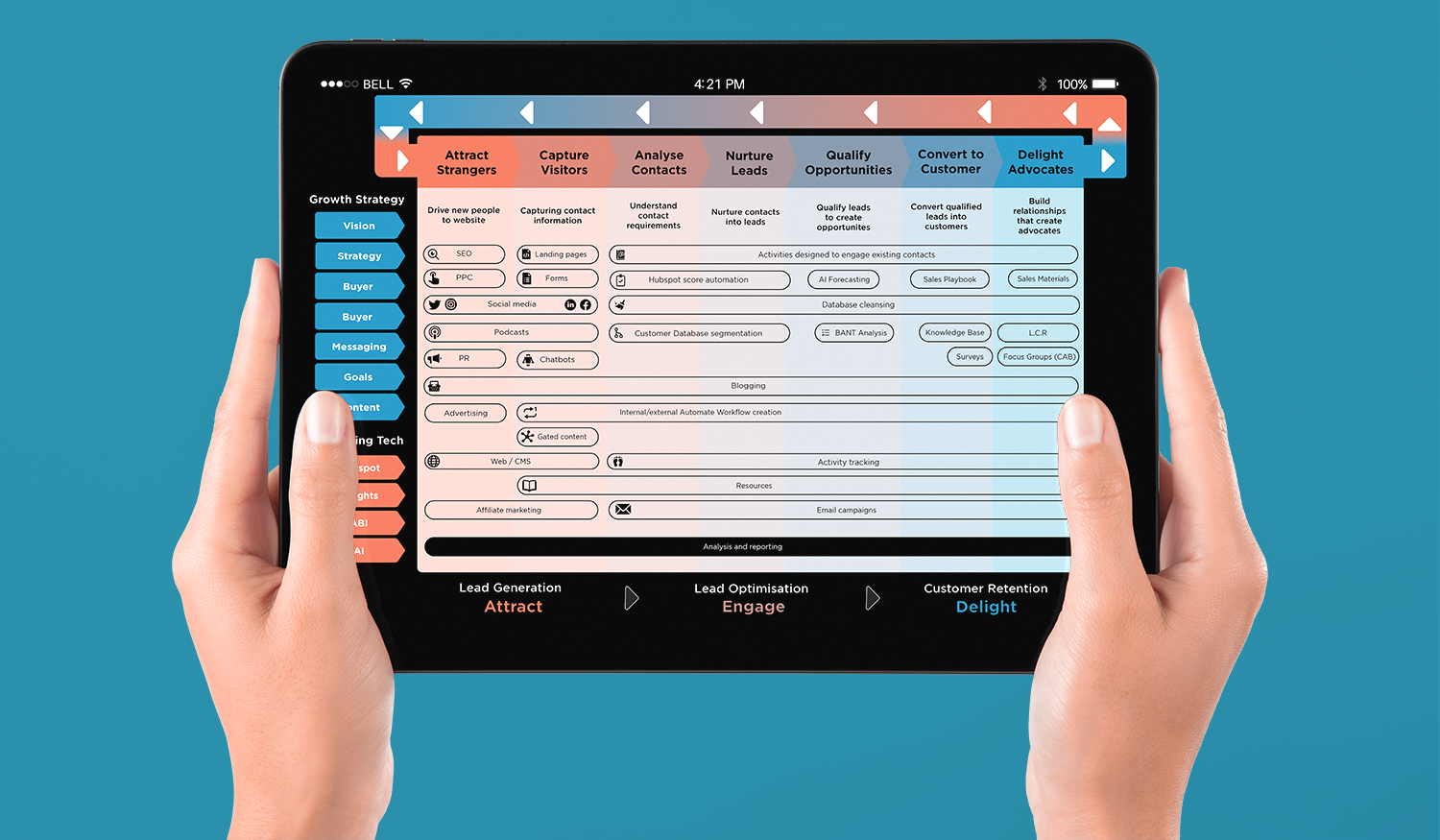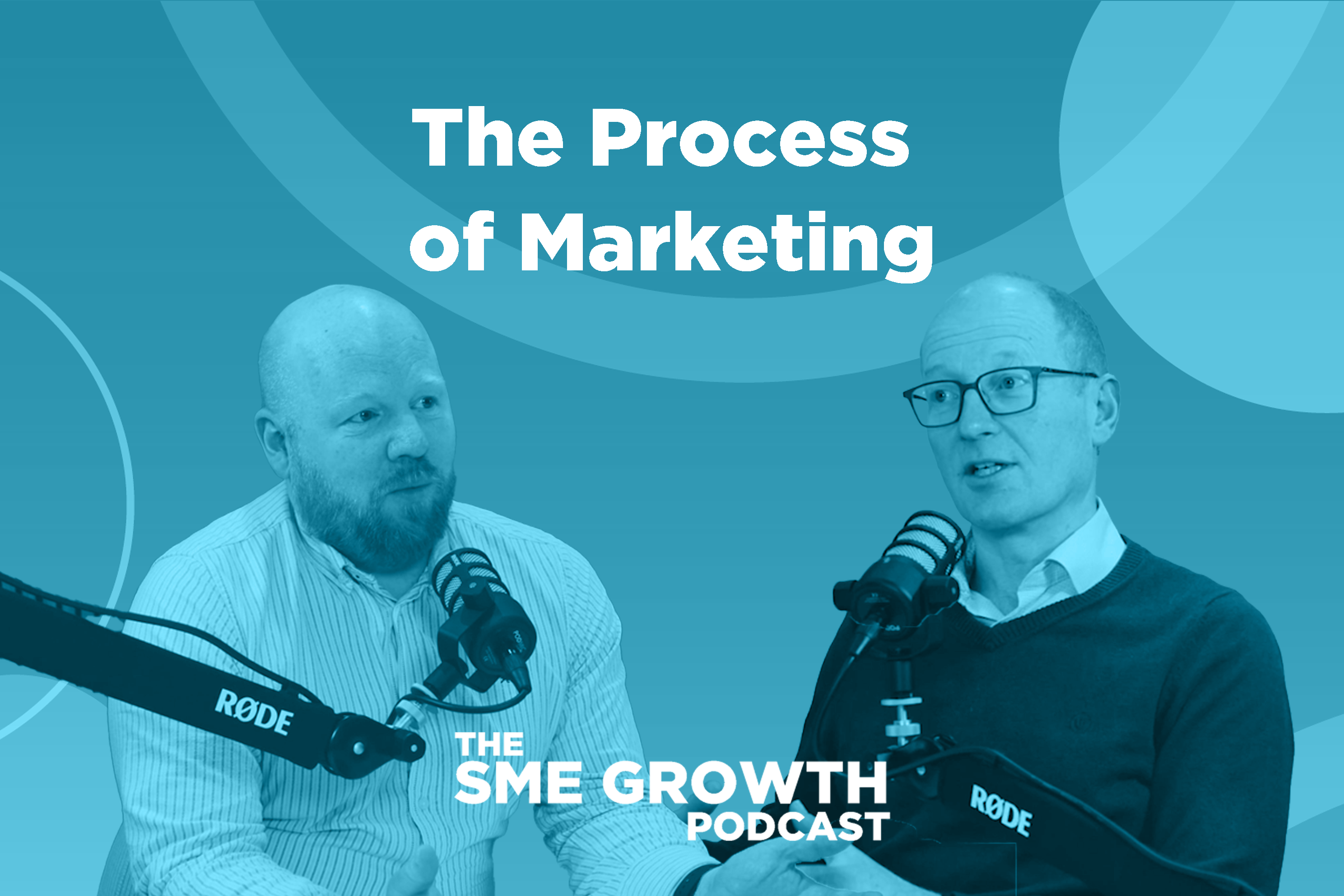7 Steps to Increase Business Growth
As a growth agency the most common question we get asked is "How do I increase my business growth?". This is our 7 step process to help increase your...
Wellmeadow supports ambitious companies with business growth enabled by HubSpot.
We've worked with over 100+ businesses at board-level across sectors such as automotive, manufacturing, healthcare, legal, SaaS, and professional services.

%20(A4).png?width=71&height=100&name=portrait%206-box%20model%20diagram%20(1170%20x%207051%20px)%20(A4).png)

-1.png?width=70&height=70&name=Square%20(1)-1.png)
-2.png)
What is one thing all businesses have in common? A need for growth! This is our 4 steps to help drive the growth of your business.
Growth can mean a variety of things, more revenue, expand the team or a new product launch as a few examples. We have constructed our four step framework to help your business to grow efficiently.
1. THINK
The first step is to think what is the vision for my business? At first this might sound a bit wishy washy but bare with me while I explain! A business' vision is a statement you are making for your desired business state. It will illustrate what you wanting to achieve and the direction to push your business in. To grow you need a motivated team behind you, so incorporate that vision statement into all you do and make it become part of your culture.
One way we've found to be an effective way to help plan a company vision is the Collins-Porras framework. From their study of hundreds of companies, Jim Collins and Jerry Porras defined a vision as a core ideology (or a guiding philosophy) and an envisioned future (or tangible image of the future). We have created this helpful worksheet for you to work through to start planning your business vision.
2. PLAN
Before we can start doing, we need a strategy! There isn't a one size fits all growth strategy, the strategy needs to relate to your outlined vision. Strategy is the link between the big picture and the detail.
A growth strategy should have a clear results-orientated action plan to overcome a defined challenge. Consider your current data, look at trends and decide what you want to achieve then influenced by your vision establish a frame work to drive towards that outcome. Finally, implement that frame work by assigning roles and responsibilities, allocate resources and invest in the correct tools to get the job done. Set yourself SMART goals to give yourself a tangible way to keep track of how you are progressing.
This is also a great stage to help inform other parts of your business that are going to all impact that final end goal. Have you outlined distinct buyer personas to help design any customer related practices? Have you considered automation and leveraging technology to help optimise your business processes? There are numerous ways to help inform and improve your offering so consider different ways you could implement whilst designing your strategy.
3. DO
This is the part where you can get stuck in! The Do stage to many is the most exciting, enough of the planning and time to take some action! This needs to be scalable to ensure you can sustainably drive growth without causing issues for yourself down the line. We have created our Growth Generator to help demonstrate all the things you can "do" at different stages of the customer journey.
The Growth Generator allows you to systemise marketing and sales activities within a structured process and understand how each section flows into the next. Attract, Engage, Delight is a common framework amongst inbound marketers to focus your business efforts, we then take that a step further. You need to find ways to Attract, Nurture, Capture, Analyse, Qualify, Convert and Delight. Our framework expands from the traditional three points to focus on the specifics of each stage, to ensure you not only Attract, Engage, Delight but also optimise the potential of each customer in their journey.
4. REVIEW
The final stage of our four steps is to review. Now you've implemented your exciting new plan, it's time to look at the data to understand what is, and what isn't, working. Reflect on your SMART goals and decided KPIs to understand if your strategy is working as intended, and utilise data to really understand where in the process things are performing or not. The data provides the proof of your success, and from there you can use it to inform any needed changes to the strategy.
A CRM, such as HubSpot, can be hugely beneficial at this stage to be able to compile all your data in one place with customisable reports to ensure you are able to use the data as needed. Use tools like Databox, Tableau or Power Bi to visualise your data, this can help uncover new insights and more easily communicate the growth journey to staff, investors and other stakeholders.
Then it's time to do it all over again and continue to drive business growth.
Interested in how we do growth? Want to learn more? Why not take a look at our free eBook "Building a Business Growth Engine", we go through each stage in more depth with specific examples, as well as providing checklists and worksheets to utilise as you complete the process.

As a growth agency the most common question we get asked is "How do I increase my business growth?". This is our 7 step process to help increase your...

In this episode of The SME Growth Podcast, Dave Parry and Richard Buckle discuss marketing as a process. By systemising and outlining your marketing...

Organic growth, also known as internal growth, is when a business adapts internal practices to boost outputs and sales. This could include optimising...